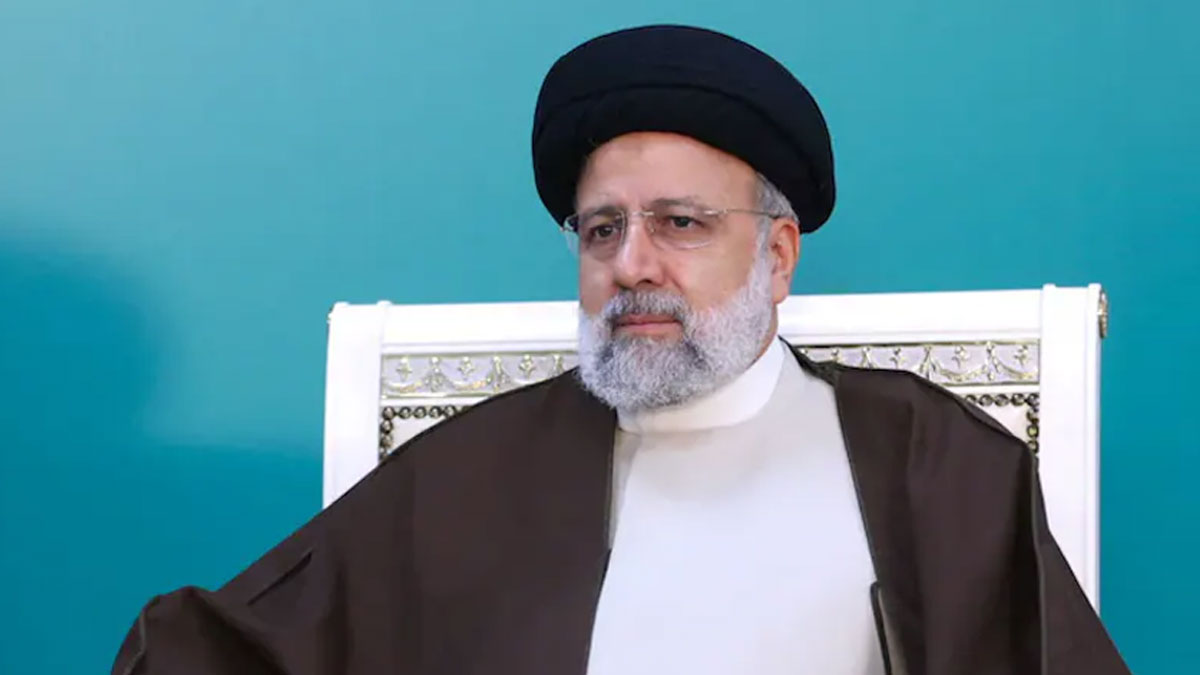- Home
- Billionaires
- Investing Newsletters
- 193CC 1000
- Article Layout 2
- Article Layout 3
- Article Layout 4
- Article Layout 5
- Article Layout 6
- Article Layout 7
- Article Layout 8
- Article Layout 9
- Article Layout 10
- Article Layout 11
- Article Layout 12
- Article Layout 13
- Article Layout 14
- Article Sidebar
- Post Format
- pages
- Archive Layouts
- Post Gallery
- Post Video Background
- Post Review
- Sponsored Post
- Leadership
- Business
- Money
- Small Business
- Innovation
- Shop
Recent Posts
Iran’s President, ‘Butcher of Tehran’, Missing After Crash

Iran’s President Ebrahim Raisi, a figure with a controversial past and the moniker ‘Butcher of Tehran’, is currently missing following a helicopter crash in a remote area of Iran, hampered by fog and adverse weather conditions. The search for Raisi, who took office in 2021 amid widespread protests over alleged election irregularities, involves at least 40 search and rescue teams scouring the northwestern province of East Azarbaijan.
Raisi’s ascent to power marked a significant shift in Iranian politics, as he is known for his ultra-conservative views and close ties to Iran’s Supreme Leader, Ali Khamenei, leading many to speculate that he could be a potential successor to Khamenei. During his presidency, Raisi has pursued a foreign policy aimed at expanding Iran’s influence in the Middle East, particularly amidst escalating tensions with Israel.
However, his domestic policies have been equally controversial. Raisi has overseen a sharp increase in the enforcement of Iran’s “hijab and chastity law,” leading to widespread protests, including those surrounding the deaths of Mahsa Amini and Armita Geravand, who were allegedly detained for violating these laws. Additionally, Raisi’s administration has faced criticism for its restrictions on women’s rights to sexual and reproductive healthcare, part of an effort to boost the country’s population.
Raisi’s human rights record has also come under scrutiny, particularly from the United States, which sanctioned him in 2019 for his alleged involvement in human rights violations, including the execution of children and the imprisonment of human rights lawyers. His tenure has been marked by a relentless crackdown on dissent, with numerous political prisoners executed, including thousands in 1988 while he served in the country’s judiciary.
In the event of Raisi’s incapacity, Iran’s first vice president, Mohammad Mokhber, is in line to assume the presidency. The country’s leadership council, comprising the speaker of parliament and the head of the judiciary, would have 50 days to organize a new presidential election.
Raisi’s rise to power is rooted in his long-standing involvement in Iranian politics, which began after the 1979 Islamic Revolution. He rose through the ranks of the judiciary, earning the nickname ‘Butcher of Tehran’ for his role in the mass executions of political prisoners in 1988. Despite a failed presidential bid in 2017, Raisi ultimately won the presidency in 2021, solidifying his position as a key figure in Iran’s political landscape.
Under Raisi’s leadership, Iran has experienced significant internal unrest, most notably the ‘Woman Life Freedom’ movement, sparked by the death of Mahsa Amini in police custody for refusing to wear a hijab. The protests that followed have led to hundreds of deaths and thousands of imprisonments, drawing international condemnation.
Raisi’s disappearance following the helicopter crash adds a new layer of uncertainty to Iran’s political future, leaving many questions about the country’s leadership unanswered.
Recent Posts
Categories
- 193cc Digital Assets2
- 5G1
- Aerospace & Defense46
- AI37
- Arts3
- Banking & Insurance11
- Big Data3
- Billionaires449
- Boats & Planes1
- Business328
- Careers13
- Cars & Bikes76
- CEO Network1
- CFO Network17
- CHRO Network1
- CIO Network1
- Cloud10
- CMO Network18
- Commercial Real Estate7
- Consultant1
- Consumer Tech180
- CxO1
- Cybersecurity68
- Dining1
- Diversity, Equity & Inclusion4
- Education7
- Energy8
- Enterprise Tech29
- Events11
- Fintech1
- Food & Drink2
- Franchises1
- Freelance1
- Future Of Work2
- Games141
- GIG1
- Healthcare78
- Hollywood & Entertainment186
- Houses1
- Innovation42
- Investing2
- Investing Newsletters4
- Leadership65
- Lifestyle11
- Manufacturing1
- Markets20
- Media193
- Mobile phone1
- Money13
- Personal Finance2
- Policy567
- Real Estate1
- Research6
- Retail1
- Retirement1
- Small Business1
- SportsMoney33
- Style & Beauty1
- Success Income1
- Taxes2
- Travel10
- Uncategorized8
- Vices1
- Watches & Jewelry2
- world's billionaires418
Related Articles
Trump Moves $4B Stake in Truth Social Parent, Stock Drops 6%
Donald Trump recently transferred his 57% stake in Trump Media & Technology...
By 193cc Agency CouncilDecember 20, 2024House Rejects Trump-Backed Funding Bill, Shutdown Looms
The U.S. House of Representatives rejected a new government funding bill on...
By 193cc Agency CouncilDecember 20, 2024Trump Named Time’s Person of the Year for Second Time
On Thursday, Time magazine honored Donald Trump as its “Person of the...
By 193cc Agency CouncilDecember 12, 2024Meta Donates $1 Million to Trump’s Inaugural Fund
Meta, the parent company of Facebook and Instagram, has confirmed a $1...
By 193cc Agency CouncilDecember 12, 2024















Leave a comment